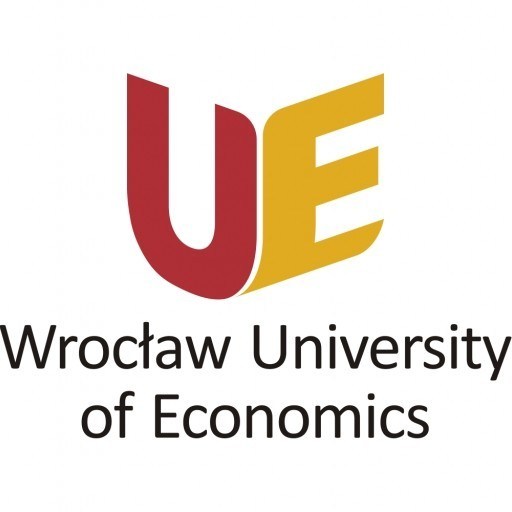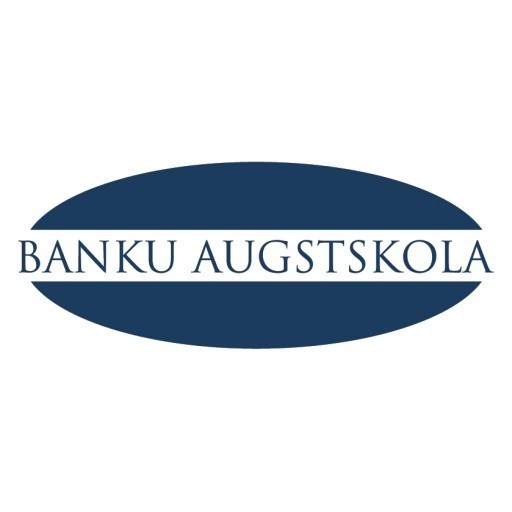Photos of university / #uewroc
Limburgs Universitair Centrum (Belgium),
EUROMED Marseille Ecole de Management (France),
University of Limerick (Ireland),
Wroclaw University of Economics (Poland).
Aims and Objectives: The overall aim of the Executive MBA Programme is to provide managers and executives with an integrated vision of an organization in a competitive economy and to deliver knowledge and skills required to recognize and approach business decision problems, and to solve them in a changing environment.
Course Structure: The Master’s Degree in Executive Business Administration is a two-year, part-time programme commencing in October. It takes place on alternate Fridays and Saturdays. The courses are divided into 4 broad categories:
- foundation,
- core,
- integration,
- orientation
The Finance program at Wroclaw University of Economics is designed to provide students with a comprehensive understanding of financial systems, instruments, and markets. This curriculum aims to equip future professionals with the necessary knowledge and skills to analyze financial data, make informed investment decisions, and manage financial resources efficiently in both domestic and international contexts. Throughout the course of study, students will explore core fields such as financial accounting, corporate finance, banking, risk management, and financial markets. The program emphasizes practical application through case studies, simulations, and internships, enabling students to gain real-world experience and improve their problem-solving abilities. Additionally, students will learn about financial regulations, ethical standards, and the impact of global economic trends on financial decision-making. The curriculum also incorporates advanced topics like financial modeling, investment analysis, and financial technology (FinTech). The program prepares graduates for careers in banking, investment firms, insurance companies, financial consulting, and corporate finance departments. Emphasis is placed on developing analytical skills, strategic thinking, and technical proficiency in financial analysis software. Students also have the opportunity to participate in international exchange programs, internships, and seminars led by industry experts to deepen their understanding of the financial sector. Upon completion of the program, graduates are well-prepared to undertake professional certifications such as CFA or ACCA, which enhance their employability and career advancement prospects in the financial industry. The program's flexible structure allows students to tailor their education according to their career interests and goals, supported by a team of experienced academic staff and industry partners. Wroclaw University of Economics’s Finance program is committed to fostering responsible financial professionals who can contribute to the development of sustainable economic growth both locally and globally.
The program in Finance at Wroclaw University of Economics requires prospective students to have completed a relevant secondary education or equivalent, demonstrating strong analytical and mathematical skills. Applicants must submit their high school diploma and provide proof of language proficiency in English, typically through standardized tests such as IELTS or TOEFL, unless they hold previous education in English or from an English-speaking country. The selection process evaluates academic records, motivation letters, and, in some cases, interviews to assess candidates' interest in finance and their potential for success in the program.
Admission criteria emphasize quantitative competencies, including mathematics, economics, or related subjects. The program is designed to develop both theoretical knowledge and practical skills in financial analysis, investment strategies, banking, and risk management. Students are expected to have a solid foundation in economics, mathematics, and computer skills, facilitating their understanding of complex financial models and data analysis.
In addition, applicants may be required to pass entrance exams or pre-admission assessments, depending on the specific year's requirements. The university encourages applicants to demonstrate extracurricular engagement or relevant work experience in the financial sector, which can enhance admission prospects. International students must meet general visa and residence requirements as specified by national regulations and provide proof of sufficient financial means to support their studies.
Once admitted, students are enrolled in a curriculum that combines lectures, seminars, case studies, and practical projects, often utilizing real-world data and simulations. The program fosters critical thinking, ethical decision-making, and communication skills. It also promotes an understanding of global financial markets and the regulatory environment, preparing graduates for careers in banking, investment, insurance, or finance consultancy. Throughout the program, students have access to university resources such as libraries, computing laboratories, and industry partnerships for internships and projects. Completion of the program requires successfully passing all coursework, exams, and a final thesis or project, aligning with the university's standards for academic excellence and professional readiness.
Financing studies at Wroclaw University of Economics are designed to equip students with comprehensive knowledge and practical skills in financial management, banking, investment analysis, and economic policy. The programme emphasizes a solid understanding of financial theories, quantitative methods, and the institutional environment of financial markets. Students will engage with core subjects such as corporate finance, financial accounting, risk management, and international finance, which are tailored to prepare them for dynamic careers in banking, financial consulting, investment firms, and public sector institutions. The curriculum incorporates modern financial instruments, regulatory frameworks, and ethical considerations relevant to the finance industry. Specializations within the programme may include banking, investment analysis, or financial engineering, enabling students to tailor their education to their career ambitions. The studies are complemented by internships, workshops, and seminars conducted by industry professionals, providing students with practical experience and networking opportunities. Learning methods combine lectures, case studies, group projects, and computer-based training, fostering analytical thinking and decision-making skills. The language of instruction is primarily English, facilitating international communication and market understanding. Graduates of the Financing programme will be well-prepared for roles such as financial analyst, banking advisor, risk manager, or financial controller. They will also have a solid foundation for pursuing further studies or certifications, such as CFA or ACCA, enhancing their career prospects. The programme aligns with current market needs, ensuring graduates are competitive applicants in the European and global financial industries. The duration of the studies typically spans three years for a bachelor's degree, with opportunities to continue to master's studies. The programme responds to the ongoing developments in global finance, incorporating digital financial services, fintech trends, and sustainable finance principles. Students will acquire not only theoretical knowledge but also practical skills essential for navigating the complex financial environment of today and tomorrow.
The Finance program offered at Wroclaw University of Economics is designed to equip students with comprehensive knowledge and practical skills necessary for a successful career in the financial sector. The curriculum covers a wide range of topics including financial analysis, investment strategies, banking, risk management, and economic principles, providing a solid foundation in both theoretical and applied finance. Students are introduced to modern financial tools, data analysis techniques, and regulatory frameworks which are crucial for navigating the dynamic financial environment. The program emphasizes the development of analytical thinking, problem-solving abilities, and decision-making skills through various case studies, projects, and internships. Wroclaw University of Economics collaborates with financial institutions and businesses, offering students opportunities for real-world experience and networking. Graduates of the Finance program are prepared for careers in banking, asset management, corporate finance, consulting, and financial advisory services. The program is typically delivered over a standard academic period in accordance with European higher education standards, and it may be conducted in Polish or English, depending on the specialization chosen by the student. The university's focus on practical training combined with academic excellence ensures that students are capable of adapting to the evolving financial landscape and contributing effectively to their future employers or entrepreneurial ventures. The faculty comprises experienced academics and industry professionals who bring valuable insights and up-to-date knowledge into the classroom. Admission requirements generally include a high school diploma, meeting language proficiency criteria (if studying in English), and sometimes passing an entrance examination. Graduates earn a Bachelor's degree in Finance, which qualifies them for entry-level positions in various financial sectors or for further postgraduate studies in finance, economics, or related fields. The university also offers opportunities for international exchange programs, allowing students to broaden their horizons and gain global perspectives on finance. Overall, the Finance program at Wroclaw University of Economics provides a rigorous, comprehensive education that prepares students for the complex demands of a career in finance, ensuring they possess the critical competence and confidence to excel in an increasingly interconnected global economy.










